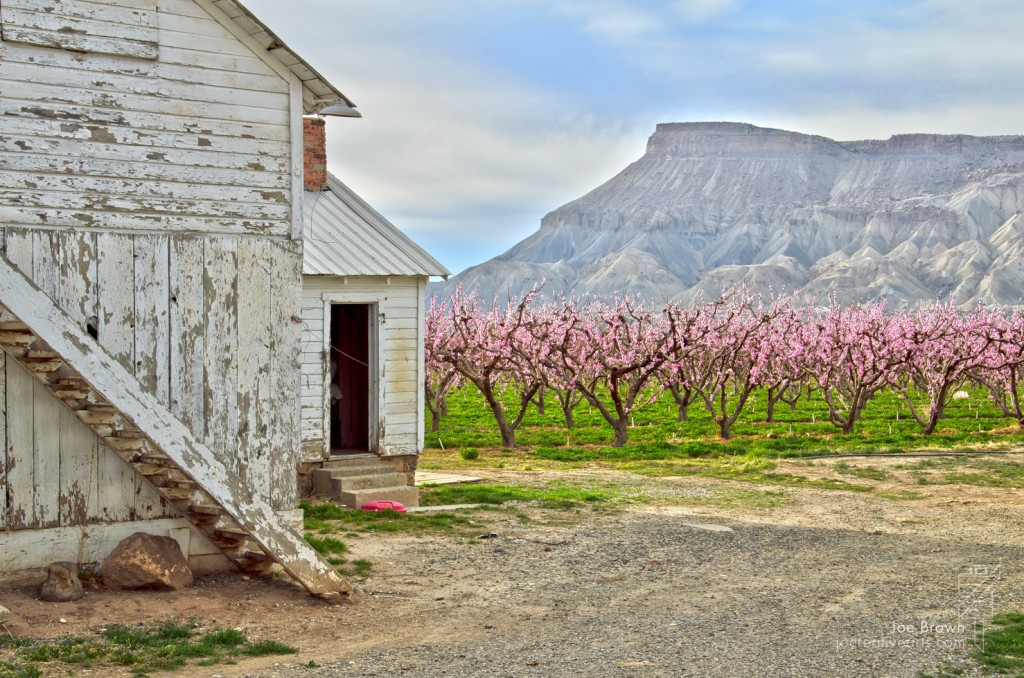 The poets tell us that spring is for love. Tomorrow, Ann will tell you it’s for running, jumping, and giving in to hormonal chaos. Where I live, spring is for gambling.
The poets tell us that spring is for love. Tomorrow, Ann will tell you it’s for running, jumping, and giving in to hormonal chaos. Where I live, spring is for gambling.
I live in the fruit basket of Colorado, in a valley famous for peaches and cherries, and every spring the local orchardists keep a close eye on the thermometer, wondering if their luck will hold this year. Cool weather makes the fruit sweeter, they say, but a freeze at the wrong time means no fruit at all. Whenever the temperature drops close to the danger zone, the growers are up all night, running fans to keep the cold air from settling, building bonfires between the rows of trees, even hoisting giant mesh curtains over entire orchards.
Sometimes the desperate measures save the buds and blossoms, and sometimes they don’t. Last month, when winter storm Walda dragged temperatures down to 19 degrees, our neighbor lost his entire apricot crop — some 7000 pounds of fruit.
In many places, climate change means that spring is arriving earlier. Which sounds kind of nice: What’s not to like about a few extra days of warm weather and carefree senioritis? (See Ann for more on the hormones.) But climate change also means more extreme weather, with more heat waves and cold snaps, and a paper published this week in Eos suggests that indeed, the spring of 2012 was the ficklest yet. Last year’s false spring, the authors write, was the earliest since reliable North American records began in the 1900s, and crops in the upper Midwest and Northeast were hit especially hard by the premature warmth and ensuing freeze. This year, it was the Rockies that took the loss.
The authors point out that phenological monitoring — studies of flowering times and other seasonal events, carried out over the decades by everyone from Henry David Thoreau to ordinary citizens in my valley — has helped scientists better understand the relationships between climate variations and the onset of spring. In time, it may be possible to predict false springs.
But for now, the orchardists here are stuck with their annual gamble. For more than a century, they’ve won — or, at least, won often enough to keep their businesses solvent and their customers happily gorging on peaches. Climate change might make the difference between a smart bet and a bad one. If so, the fruitgrowers won’t be the only ones to lose.
Image of a Colorado orchard from Flickr user Joe Grand of the Monument. Creative Commons.
The title is a line from Shakespeare’s Sonnet 18 (“Shall I compare thee to a summer’s day?”) Fun fact: the poem was originally addressed to a man.
Can’t help myself because it’s so appropriate: “Rough winds do shake the darling buds of May.”
Goodness but that man could write.